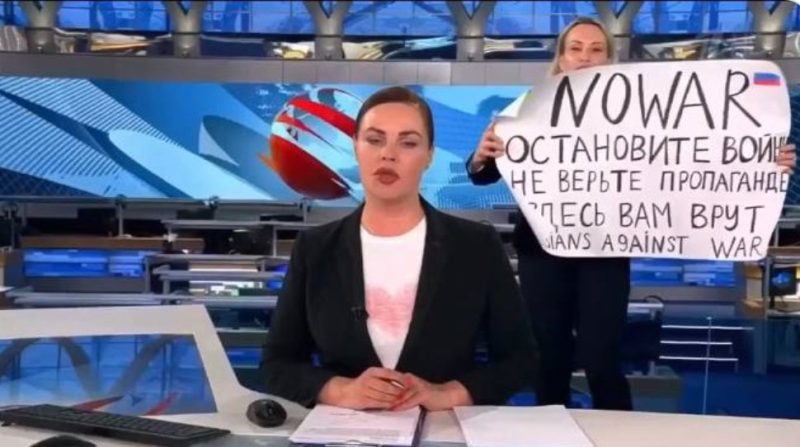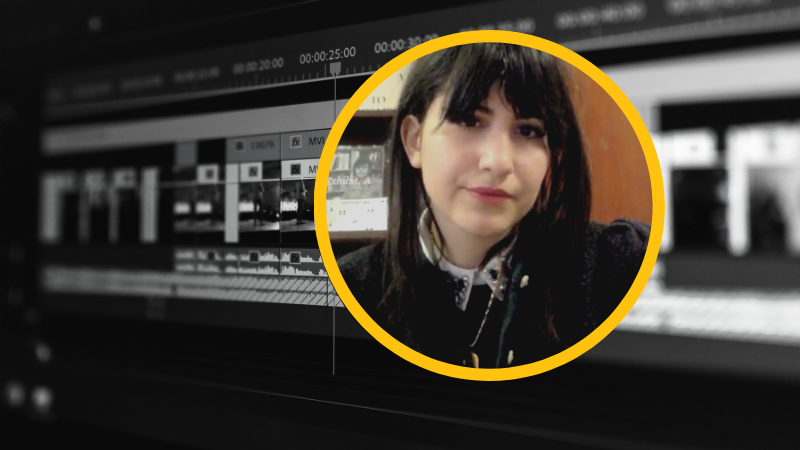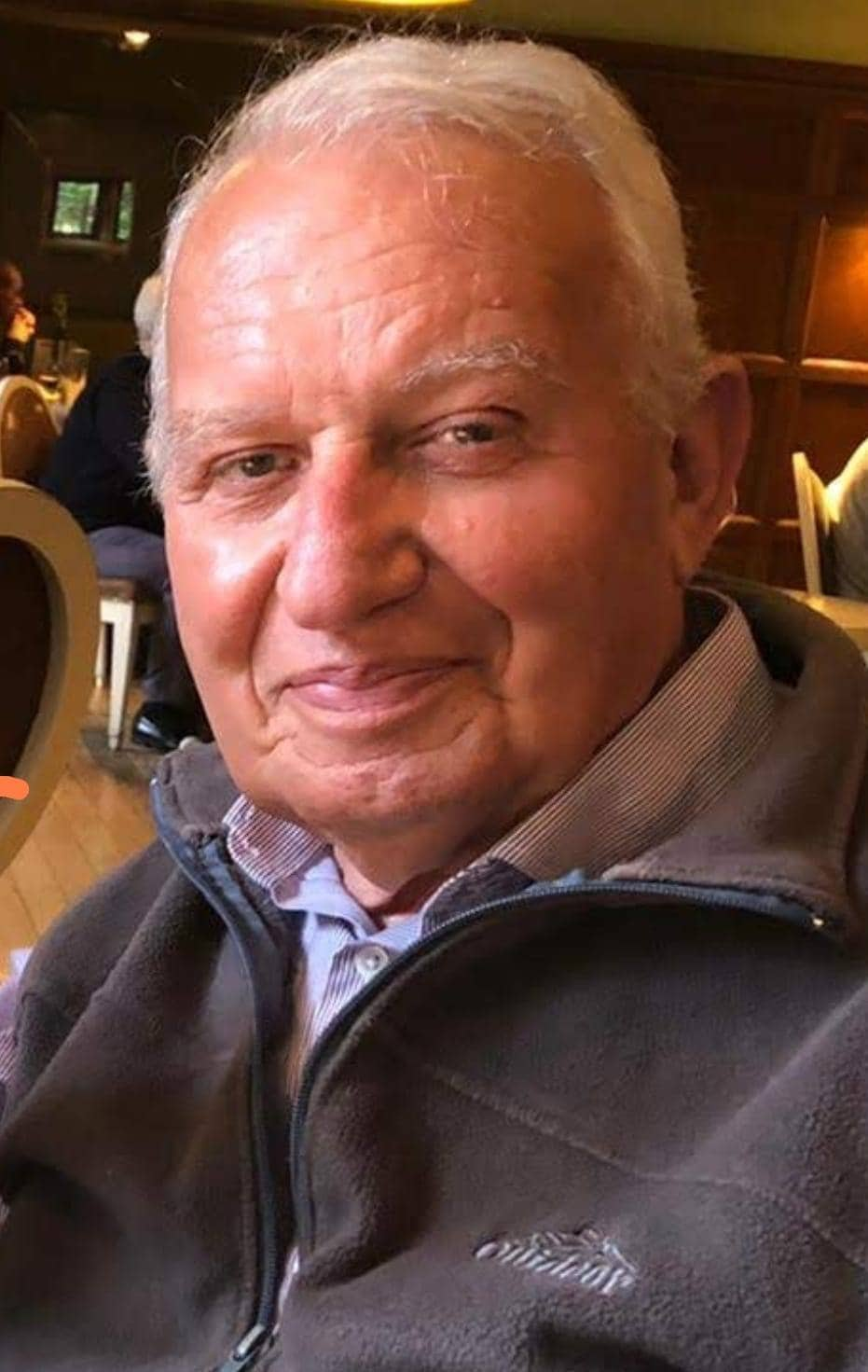Former Lovin Malta reporter Sam Vassallo’s brief position at Russian state-owned news agency Ruptly led her to experience first-hand the influence that powers at play have on the media channels they own.
Vassallo, who was drawn to the opportunity of a position at the news agency’s Berlin bureau because of its international appeal, spoke to The Shift about her month-long experience at the global video-editing agency, which coincided with Russia’s invasion of Ukraine.
Ruptly is a Russian state-owned video news agency that specialises in on-demand video to news portals around the world.
Vassallo explained how although the Berlin bureau was made up of people who “didn’t necessarily agree with the people funding them”, it would receive directions from Ruptly’s Moscow-based headquarters.
Such directions were not obvious at first. Vassallo felt that the work she and her colleagues had to do was done in an unbiased way, reporting stories from around the world – from the White House to Australia – with the facts at hand and without influence. However, the agenda started to become less opaque once the war began on 24 February, a few weeks into Vassallo’s new role.
“It all started with them not wanting us to call (the attack) an invasion, but instead use the words ‘special military operation’,” she said, citing an example. Another instance she recalled was being told to upload the video of Russian President Vladimir Putin’s declaration of war hours after it would be considered breaking news.
However, the reporter said that even when confronting editors about calling the invasion a ‘special military operation’, the reply was a helpless one. “The editor tried to battle it but people at the top kept insisting it’s a special operation,” she said.
Vassallo, who said she left the role at Ruptly for “moral reasons”, soon started to become uncomfortable with her position at the state-owned agency – a sentiment shared by her other colleagues in the Berlin newsroom. This discomfort was amplified when Berlin protesters took to the streets to condemn Russia, and point fingers at Ruptly in the process.
“I had nightmares from watching all the videos I was editing, and when I thought that I was being funded by the people committing such atrocities,” she told The Shift.
However, the sense of discomfort felt by both Vassallo and many of her colleagues remained the elephant in the room until it was eventually vocalised during a meeting with Ruptly’s Moscow-based CEO, who tried to calm down the staff. Following the meeting, many of Vassallo’s colleagues took a stand and left the company in a show of force.
“It’s quite scary to resign from my position after deciding to move my life to Berlin, and having my moral compass shaken up as it was,” she said. Looking on to greener pastures, Vassallo told The Shift that she has now found a job working in arts and culture and plans to continue “telling the stories she believes in” on a freelance basis.
“I hope to take what I learned from that past month and hopefully not be so naive next time,” she admitted.
State media controlled, independent media silenced
Meanwhile, as the invasion intensifies, so does the Russian State’s hold on what is being said about the war.
Russian independent news outlet Novaya Gazeta, whose editor-in-chief Dmitry Muratov was awarded the 2021 Nobel Peace Prize together with Filipino editor of Rappler Maria Ressa, said in a statement that it had received two warnings from the Russian press watchdog Roskomnadzor, which had put its operating licence at risk and the news outlet consequently decided to suspend work until the end of the war.
https://twitter.com/GraceCuddihy/status/1508560817649860609
Roskomnadzor warned the outlet that they were in breach of Russian law by lacking citations that an NGO mentioned in a news article was a “foreign agent”. Muratov said that it was a “terrible and difficult decision” to suspend work.
Since the beginning of the invasion, Russian authorities have also introduced new laws threatening heavy prison sentences of up to 15 years for the spread of information that the Kremlin would consider to be false information about the Ukraine invasion.
Russia has also halted access to several foreign news organisations’ websites, including the BBC, Deutsche Welle, Voice of America and Radio Free Europe, among others, for their portrayal of the war.
It has also banned access to Facebook and Instagram within the country. Meanwhile, Russia’s state-owned media continues to broadcast its own version of events while silencing anyone that opposes its official narrative.
The strength of Russia’s grip on the narrative of the invasion was thrown into the spotlight earlier in March when former Russian state media journalist Marina Ovsyannikova took a dramatic stand against the Ukrainian war in Ukraine on live television, holding up a sign saying “NO WAR”.

Marina Ovsyannikova holds up a sign saying no to war on a live Russian state tv broadcast.
Earlier in March, Ovsyannikova told CNN’s Christiane Amanpour that Russian journalists see a disconnect between reality and what is presented on the country’s television channels and that even her mother has been “brainwashed” by propaganda. She has since been labelled a ‘British spy’ by her former boss.
“The war was the point of no return when it was simply impossible to stay silent,” she said.
Since, Ovsyannikova has been fined 30,000 rubles (€255) for breaking protest laws and faces up to 15 years in prison under the new law passed during the invasion, for calling the invasion of Ukraine a war instead of a “special military operation”. Ovsyannikova pointed out that the fine was “not the end of the story”.
















On the day troops moved across the border i altered my MELITA TV SUBSCRIPTION TO BARE MINIMUM. This I did to eliminate Russian and Chinese pseudo stations. I have known them since the 1960.
I simply learned to read writing on the wall.
Reminds me, I made good use of seven decades. I invested in time not money.